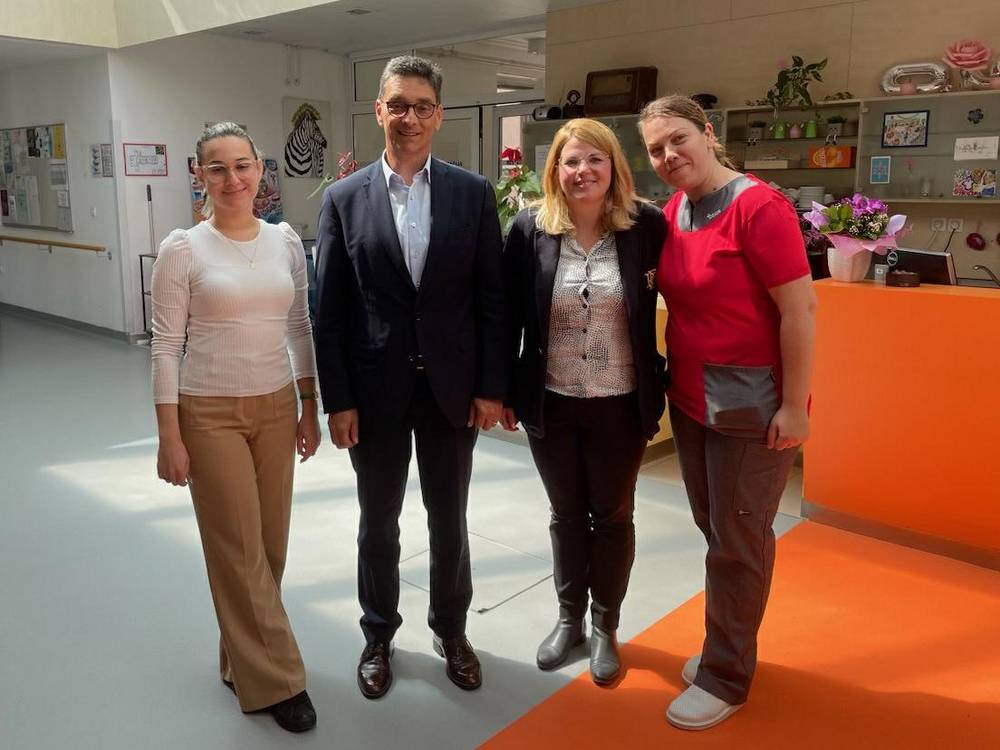Today, 23 May 2024, Human Rights Ombudsman Peter Svetina (Ombudsman) visited the Horjul Centre for the Elderly, had a tour of it, and talked with the director, Silvija Janežič, about care for the elderly in Slovenia. He emphasised that it is necessary to adopt measures and forms of assistance that will improve care for the elderly and their rights. "In addition to the amount of allocated funds, the state must demonstrate its recognition that the elderly are a valuable part of the community, not just declaratively," he said. In his opinion, legislative solutions in this area should be high on the priority list, and action is also needed at the supranational level. The Ombudsman regrets that we still do not have an international instrument that would oblige all countries to provide appropriate care for the elderly and also set sanctions for violators. "We all welcome the efforts in the United Nations to prepare a Convention for the Protection of the Elderly, but unfortunately, they are taking place too slowly," said Ombudsman Svetina.
In the conversation, he also emphasised that throughout his mandate, he has been working to ensure that those in charge adopt effective systemic solutions to improve social care. "A person must be able to decide independently and autonomously how and where they will spend their old age, and the quality of care must be good, which requires a sufficient number of people whose work is properly valued," emphasises the Ombudsman.
Well-functioning different forms of assistance and social services are needed, such as home help, assisted living, personal assistance, a strong patronage service, nursing departments, and others. Without them, we will not develop towards deinstitutionalisation, which we otherwise strongly support, the Ombudsman underlined.
Despite the tendencies towards deinstitutionalisation, a certain part of the population will always need institutional care, so it is the task of society to make it safe, dignified, and friendly. The Ombudsman expressed concern about the current situation, which is plagued by a lack of staff, inadequate work standards and norms, and a lack of funds. He considers it unacceptable that, due to a lack of staff, one in four homes for the elderly has empty beds, and as many as 40 per cent of them are performing poorly, as reported by the Association of Social Institutions. Facilities are often dilapidated or inadequate, and at the same time, we are also faced with deficient regulation, the interlocutors noted.
"Investing in social care would increase the quality of life of many, both those who are cared for and caregivers themselves, and the system would emerge from its state of malnutrition. Adequate staffing levels, decent working conditions, safety and support in the workplace, and appropriate remuneration must be ensured for all those who work almost exclusively and solely on ethical drive," the Ombudsman emphasised. "With adequate care for caregivers as well, we could also avoid unacceptable incidents of inappropriate behaviour towards the elderly, which we learn about from complainants," the Ombudsman added.

![[Translate to English:] Varuh v Centru starejših Horjul](/fileadmin/_processed_/3/3/csm_Varuh_v_DEOS_Horjul_8fb9e9ed64.jpg)